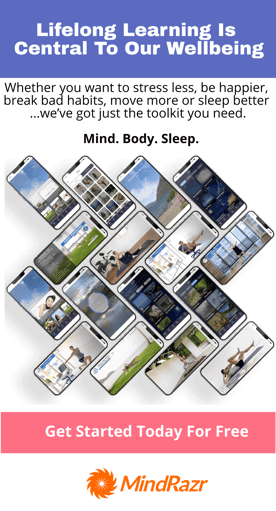The Importance Of Lifelong Learning
I still remember the sense of relief I experienced when I completed high school and realized that I didn’t have to study any more. And I recall the same sense of relief when I completed a university degree. Then when I went back and did second and third degrees, I felt that relief again. In each case though, the sense of relief was relatively short-lived and it was followed soon after by a desire to learn more. Years ago, I remember people using the phrase “perpetual student”, almost as an insult, suggesting that whoever they were talking about wasn’t getting down to the real business of life which was to work and earn money. But is this a reasonable view of learning and what it can do for us?
Curiosity is good for you
The physicist Albert Einstein reportedly once said: “Most people stop looking when they find the proverbial needle in the haystack. I would continue looking to see if there were other needles”. I’d probably also be looking to see what else might be in the haystack apart from needles! Who knows what could be there?? This approach represents the idea of lifelong learning which has been the focus of various studies for many years and is defined by having three key components: it’s ongoing, it’s voluntary and it’s self motivated. Furthermore, lifelong learning can apply equally to personal and professional domains.
In one fascinating study, over 2000 older adults aged 60-86 were studied over a five year period. Those who were more curious at the start of the study were also more likely to be alive at the end, regardless of their underlying health status. The reasons for this are less clear and one possibility is that declining curiosity is an outcome of declining health (for example Alzheimer’s Disease). Nevertheless, the result is enough to make us wonder why there may be a link between curiosity and longevity.
There are other likely benefits to our overall health and well-being from adopting a curious perspective and desiring to learn more. For example, learning new skills and stretching ourselves in ways that we haven’t previously done feeds the development of self-efficacy. We know that self-efficacy is an important element of the construct Psychological Capital which is a measure of the internal resources we have to be able to deal with the daily challenges that life throws at us. Learning can therefore form an important element of our capacity to effectively manage stress in our lives.
Having a learning mindset can also bolster social relationships, again from several angles. Firstly, if you cultivate a curiosity in yourself you are likely to want to learn more about the people with whom you socialise and interact. This openness in the relationship will foster connectedness and relationship growth which serves us well as we move through life. Secondly, seeking to learn something new is often way more fun when you do it with someone else, particularly someone who is significant to you in some way. If you decided to learn to prepare and cook Thai cuisine, or learn to dance, or learn another language, or learn to sail or fly or skydive or even learn how to build your own house, do you imagine it would be more fun to do it alone or with someone who is significant to you?
And, the 2015 Gallup World Happiness Poll, found that the likelihood of learning or doing something interesting correlated positively with happiness in adults, even more so in men.
So, in summary, there are a lot of good reasons why adopting a curious mindset and seeking to engage in lifelong learning is good for you!
How human brains are wired
One of the ways that we believe human brains have worked over the millions of years of our evolution is through pattern detection. Pattern detection provides a rapid and typically quite accurate means of assessing the threat that something new may pose. If you think about our origins and what might give us a survival edge, being able to recognise something that’s new and different and be immediately be suspicious of it is useful. If something is familiar, we can largely ignore it and simply get on with our daily business. This may explain why, in part, when you think you see a shadow in a place you don’t normally see it or when you hear a noise at a time you don’t normally hear it, you immediately feel anxious and on alert – this could represent a threat.
The real challenge for us now of course is to recognise that lots of things that we are hardwired to interpret as threats, are not actually threats. In particular, we need to push past this “negativity bias” to lean towards more of a “positivity effect”. This makes us more likely to engage with things that are new and different from what we are used to seeing in our daily lives. But we can only search for this positivity when we feel safe. This provides us with a bit of a clue about the link between learning and say, anxiety.
If you’re someone who is prone to worry or anxiety, you’ll know how distracting that can be. But it also generally acts to reduce your sense of safety and security in the world and therefore makes it more likely that you might avoid engaging in new learning. If you think you might recognise yourself in this description, even in a small way, then I’m going to encourage you to begin by addressing the source of that worry and anxiety and recognise that if you do that you’ll immediately be opening yourself up to the possibility of engaging more easily in learning. In particular, if you recognise that you tend to worry, even when there’s no real basis for that, then take the time to evaluate your worries against the evidence for something rather than your perceptions of something. This can help create a distinction between real and reasonable concern and unnecessary worry.
How can we develop our capacity for curiosity and learning?
One of the best ways to begin the process of increasing your curiosity is to notice the things that are in your immediate environment all the time (and which you often probably look straight past) and begin to wonder more about them.
For example, after the wind blows, why do the leaves always seem to pile up in one particular part of your yard? When you watch a fan spinning, why does it sometimes look like the fan blades are beginning to spin more slowly in the opposite direction? How does your dog know you’re about to take him for a walk, even when you haven’t yet picked up the leash? Or, as I apparently asked my father as a very young child, “Where does the light go when it goes out?”
The more we begin to wonder about and think about everyday parts of our lives, the more we cultivate the capacity for curiosity and the desire to learn. Here is an experiment you can do right now. Hold your index finger in front of your face so you can focus on it easily. Look at it for 30 seconds. Put your hand down. Now look again at that same finger for 30 seconds, only this time look for something different or something that you haven’t noticed in that finger before. You’ll likely noticed a bump, a ridge, or a discolouration, or texture in the skin which has literally been in front of your eyes thousands and thousands and thousands of times but you might not ever have noticed.
Another technique for developing curiosity and a love of learning is to use the skill of mindfulness to really tune into your own internal talk. In particular, listen for those times when you begin talking to yourself with words like “I wonder” or “Why?” or how? or what? or where? These almost always represent the beginning of some small curiosity about something. If you can hear these and dig into that curiosity further, you’re forming the foundation of the process of learning.
If you want to jump straight in, then make a conscious choice to simply learn something that is completely new to you and which you may never have considered learning about before. That may be a language, a technical skill, something about an event in history, something about a particular person either living or dead or pretty much anything that you can think of that it’s possible to learn more about. This can really kickstart the process of learning and if you maintain an openness and curiosity about what you’re learning, each new element of that opens a new doorway to something else that you could learn about.
One of the most effective ways to open your mind to learning more is to practice the skill of observation, rather than evaluation. It’s really surprising how much we think we are observing in daily life but in fact we’re making evaluations. Evaluations are important and useful, but they can also dampen down our curiosity. As soon as we think think we understand something sufficiently, a natural tendency is to move on and look for something else. If you choose to make only observations, then each of these observations can open up further curiosity about why that might be. Let me give you a simple example. If it’s raining, you might look out the window and say to yourself “Huh. It’s pouring. That’s the end of going to the park.” Alternatively, adopting a framework of observation would mean looking out the window and simply observing that it is raining. Once this observation is made, the opportunities for further curiosity and learning are almost endless. You could wonder about the direction from which the rain is coming, how long that it will likely last, the weather pattern that follows behind it and so on. You could begin to create a list of all the things that you could do despite the rain. You could create a list of all the things that you could do in the rain. You could wonder to yourself about what the worst possible outcome of being in the rain would be. (Hint: you get wet.)
Go for it
Wherever you choose to start, whether it’s by looking at your index finger or jumping straight into something new to learn or simply by becoming more observant about what’s going on around you, the rewards that come from engaging in lifelong learning accumulate quickly and broadly. In time, it’s likely you’ll be happier, more engaged, more socially connected and quite possibly living a longer and more fulfilled life than you would’ve imagined otherwise.
Simon Matthews
FASLM, MHlthSci, DipIBLM, MAPS
Writing exclusively for MindRazr, Simon is the CEO of Wellcoaches® Australia, an AHPRA Registered Psychologist, Board Certified Lifestyle Medicine Professional, Fellow of the Australasian Society of Lifestyle Medicine and Fitness Trainer.
Share this
You May Also Like
These Related Stories

Sleep for your Life!

Food and Mood - The Link Between What We Eat And How We Feel





